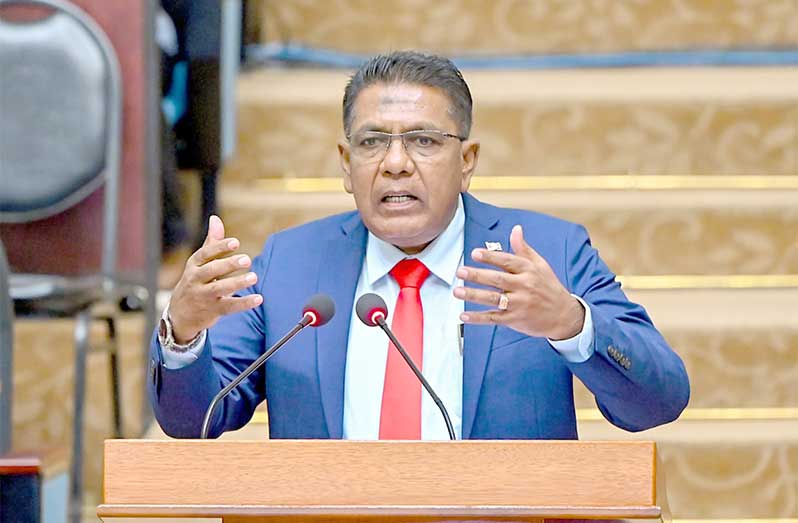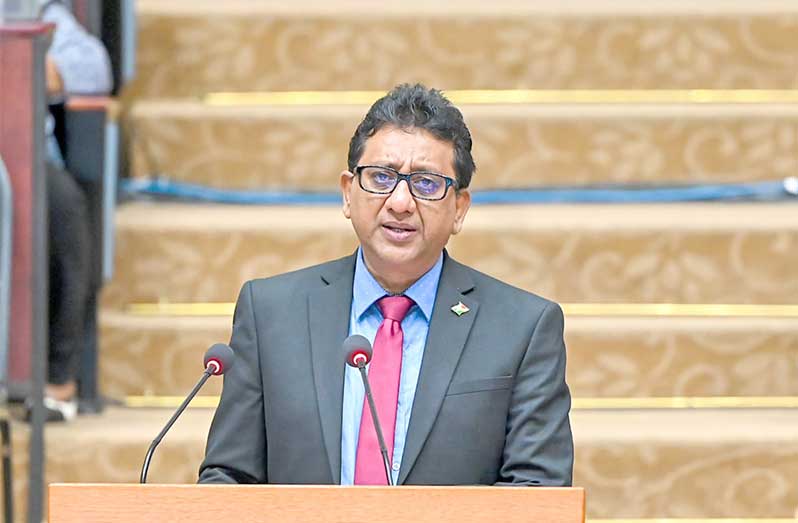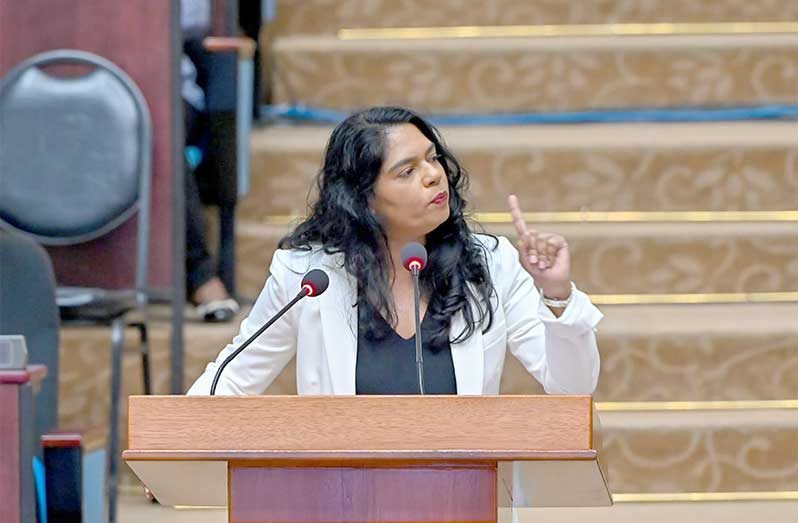–plugs possible loophole for interference by ‘miscreants’
–boosts initial adjustment that facilitates greater decentralisation of tabulation, quicker response, effective oversight of sub-districts
THE National Assembly on Monday passed an amendment to the Representation of the People Act (RoPA) ahead of the 2025 General and Regional elections.
The amendment, which was passed, added further clarity and definition to a part of the act, which was previously amended two years ago, that saw the division of electoral districts Regions Three, Four and Six into sub-districts.

These sub-districts, as mentioned in the previous amendments, would be headed by a “Supernumerary Returning Officer”(SRO)” and as a result, the additional amendment sought to define the role to include “Deputy Supernumerary Officer”(DSRO).
To this end, the explanatory memorandum of the amendment noted that Clause Two amends section two, the interpretation section of the act, to extend, in subsection (1), the definition of “supernumerary returning officer” to mean “a deputy supernumerary returning officer” in keeping with the definition of “returning officer” in section two (one) of the act.
According to Attorney-General and Minister of Legal Affairs, Anil Nandlall, SC, in whose name the bill was tabled, indicated that when amendments were enacted in 2022, the definition of a Supernumerary Returning Officer to include someone to deputise his or her function was omitted.
It was against this backdrop that he stated when one draws the analogy between this supernumerary returning officer and the returning officer, the former will be a miniaturised version of the latter.
He added that upon realisation of the omission, they believed that commonsense and logic would have allowed for a definition and interpretation that would accommodate the omission, as in his view, if that person is not there, someone can deputise by operation of law and by normal grammatical canons of interpretation.
“But we are dealing here with electoral miscreants, and you can’t leave anything to chance here… they are very annoyed that we are blocking this last hole,” he said.
Minister of Local Government and Regional Development, Sonia Parag, also added to the debate, noting that the amendment is a targeted insertion that must not be overlooked.
She told the House that it further reflects the practical structure already being used in Guyana’s electoral process, one that allows for greater decentralisation of tabulation, quicker response times after the close of polls and more effective oversight of sub-districts.
Parag expressed, “No longer should we have to be sitting in a country waiting five months for the results of our election that we already can know within hours of the tallying and the ascertaining of those votes.”
Additionally, far from an arbitrary legal change, she added that it is a product of needed legislative reform that was brought by the administration subsequent to the distressing events that surrounded the 2020 election.
“The new definition supports a structure that is more robust, layered with accountability and one where the duties of all officers are from presiding officers and tabulating offices are clear, are clearly assigned, codified and reinforced,” Parag disclosed.

Also adding to the debate was the Minister of Agriculture, Zulfikar Mustapha, who indicated that it serves part of a critical reform.
He asserted, “It is a deliberate and substantive clarification that fortifies structural integrity of our electoral process by defining the scope and status of these officers, particularly with the highly populated Regions, Three, Four and Six.”
Speaking of the specific definition, he indicated that this makes it clear so that whenever the SRO cannot continue with the counting, the DSRO will be able to take over, and as such, the counting or tallying of votes will continue without being hampered and done in a timely and efficient manner.
In 2022, the 63-page bill amending the Representation of the People Act was passed and paved the way for electoral districts, three, four and six to be divided for the purpose of the tabulation of votes.
It was tabled following extensive consultation and was described as a much-needed amendment to the legislation.
At that time, it was indicated that the amendments are wide-ranging and cover from top to bottom of the initial ROPA.
Initially, the first recommendation was for District Four to be divided into these sub-districts, as this region was the subject of issues highlighted during the 2020 General and Regional Elections.
When proposals for the amendments were put forward, the opposition rebelled against this recommendation, as it believed that the adjustment would cause interference in an area that is widely considered their “stronghold”.
As such, in a bid to demonstrate the government’s commitment to a transparent process, a decision was made to include two electoral districts, these being Three and Six, by using the rationale of the voting population.
Specifically, section 6A of the 2022 amendments to ROPA states that Electoral District No. Three will be divided into three sub-districts, while District No. Four will be divided into four sub-districts, and District No. Six into three.
These sub-districts will have a Supernumerary Returning Officer, who will perform the duties of what used to be the functions of the Returning Officer for the entire district.
As such, ballots and Statements of Poll, along with ballot boxes will go to a centre presided over by this Supernumerary Officer, who will conduct the tabulation which would have been tabulated by a Returning Officer using the same guidelines.



.jpg)








